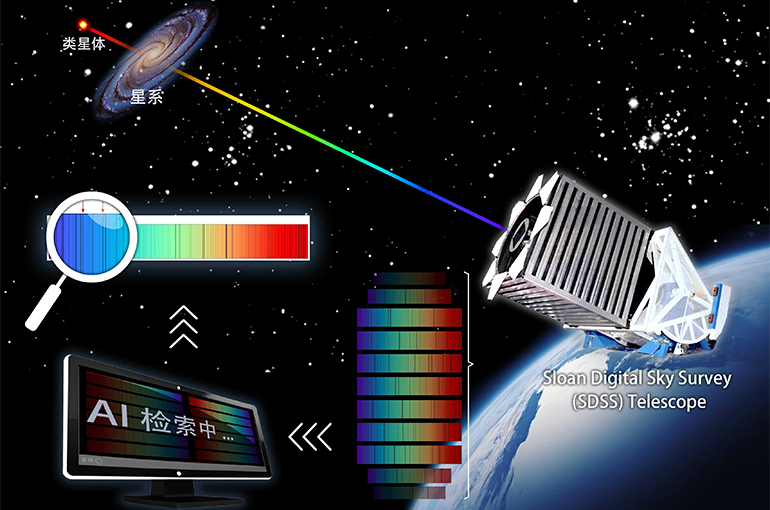 Team Led by Chinese Astronomer Detect Rare Neutral Atomic-Carbon Absorbers With AI
Team Led by Chinese Astronomer Detect Rare Neutral Atomic-Carbon Absorbers With AI(Yicai) May 16 -- An international team led by a Chinese researcher has used a self-developed deep neural network system to discover 107 crucial probes of neutral carbon absorbers in cold gas cloud components within early-universe galaxies.
The team led by Ge Jian from the Shanghai Astronomical Observatory, Chinese Academy of Sciences published the research findings on Monthly Notices of the Royal Astronomical Society yesterday.
The research findings validate a recent new discovery by the James Webb Space Telescope of diamond-like carbon dust in the earliest stars of the universe, indicating that the evolution of certain galaxies may be much faster than expected, challenging existing models of galaxy formation and evolution.
This groundbreaking discovery is a milestone in the application of artificial intelligence to astronomical big data, Ge told Yicai. The trained deep neural networks have far surpassed the efficiency of astronomers trained for many years, enabling them to rapidly identify extremely rare and faint signals within vast amounts of data, Ge noted.
The study of cold gasses and dust is crucial for dissecting the formation and evolution of galaxies, as it can provide astronomers with a key tool to explore the dramatic changes from the initial assembly of galaxies to the period of star formation throughout the entire lifecycle of galaxies in later stages of evolution.
The sample size used in this study is nearly twice as large as the previous largest one, and it has detected even fainter signals than before, Ge explained.
"We generated simulated data that perfectly matched the characteristics of real signals and used them to train deep neural networks, enabling the machine to identify probes with these features," Ge said, adding that the team started designing and training the neural network system in 2017.
"The neural network system has significantly reduced the amount of work time required," according to Ge. "It would have taken several months of manual research to do what the system did in tens of seconds."
Editor: Futura Costaglione